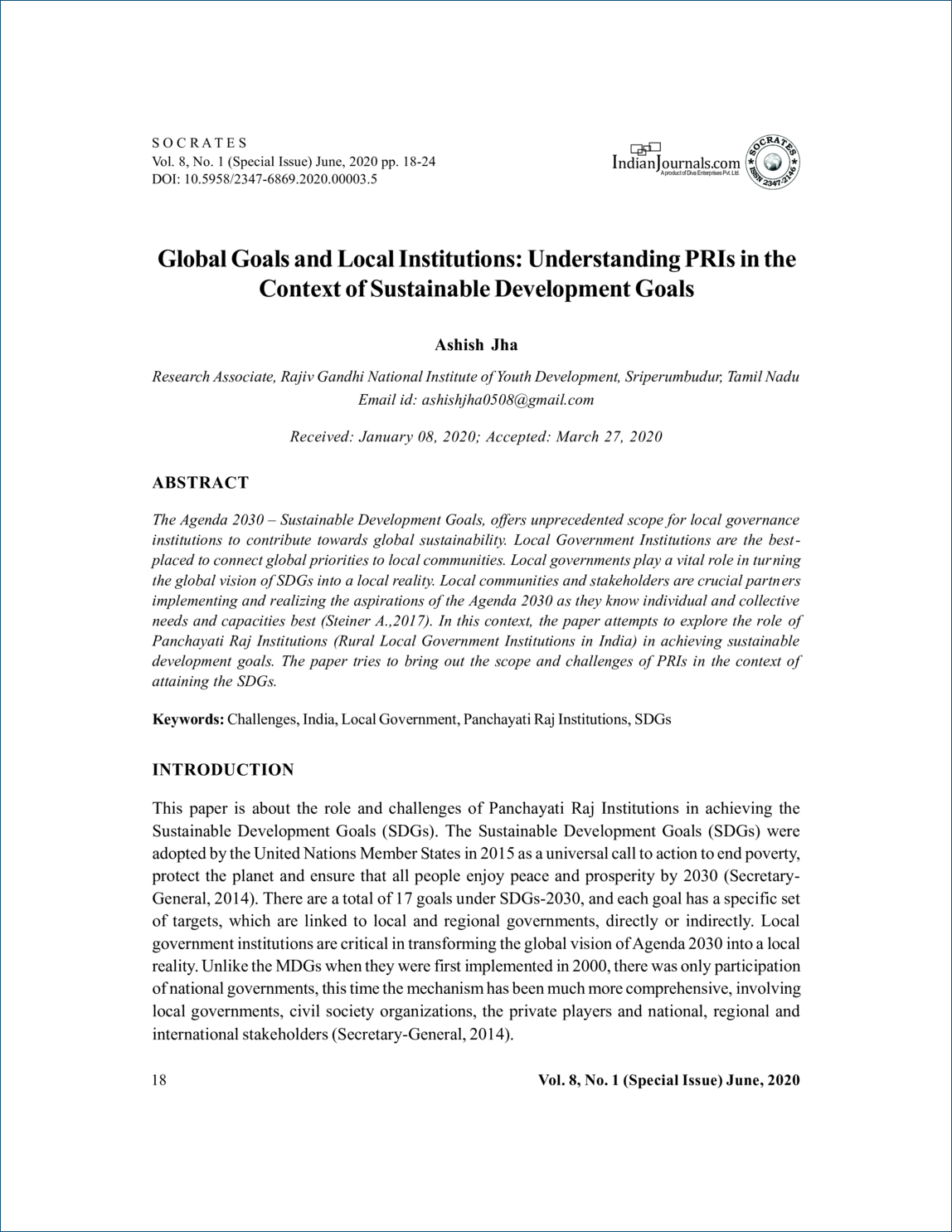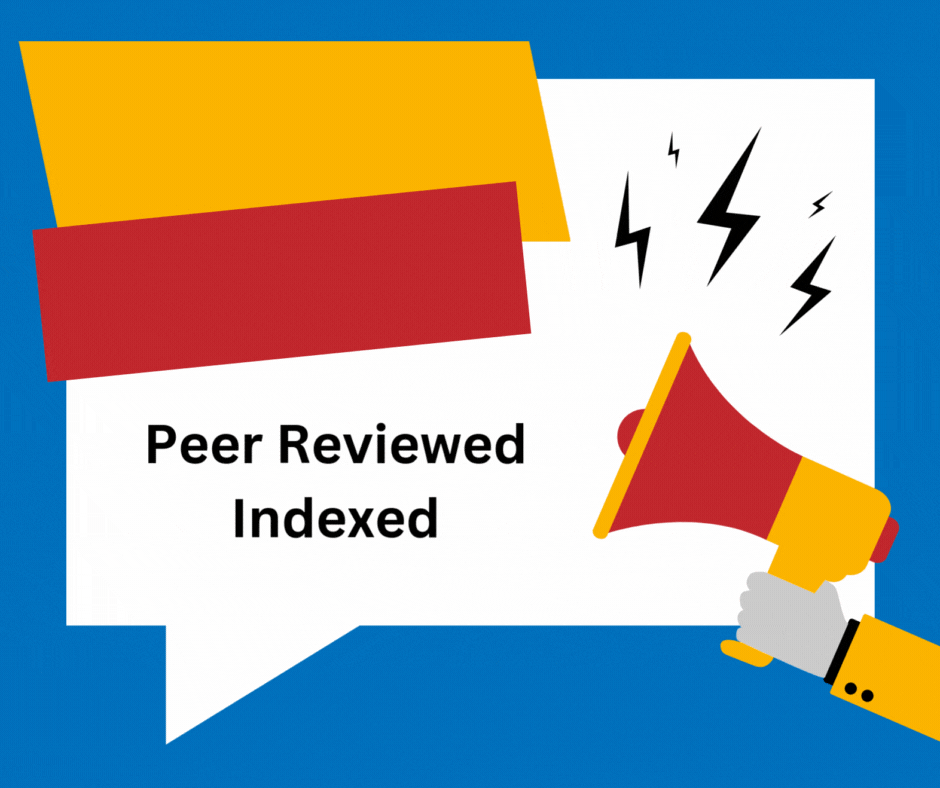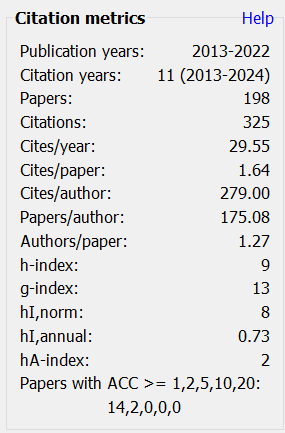Global Goals and Local Institutions
Understanding PRIs in the Context of Sustainable Development Goals
DOI:
https://doi.org/10.5958/2347-6869.2020.00003.5Keywords:
SDGs, Panchayati Raj Institutions, Challenges, Local Government, IndiaAbstract
The Agenda 2030 – Sustainable Development Goals, offers unprecedented scope for local governance institutions to contribute towards global sustainability. Local Government Institutions are the best-placed to connect global priorities to local communities. Local governments play a vital role in turning the global vision of SDGs into a local reality. Local communities and stakeholders are crucial partners implementing and realizing the aspirations of the Agenda 2030 as they know individual and collective needs and capacities best (Steiner A.,2017). In this context, the paper attempts to explore the role of Panchayati Raj Institutions (Rural Local Government Institutions in India) in achieving sustainable development goals. The paper tries to bring out the scope and challenges of PRIs in the context of attaining the SDGs.
DOI: 10.5958/2347-6869.2020.00003.5
Downloads
Metrics
References
Secretary-General, U. N. (2014). The road to dignity by 2030: ending poverty, transforming all lives and protecting the planet. Synthesis Report of the Secretary-General On the Post-2015 Agenda New York: United Nations
Singh, H. (1994). Constitutional Base for Panchayati Raj in India: The 73rd Amendment Act. Asian Survey, 34(9), 818-827.
Steiner, A. (2017). Localizing the Implementation of the SDGs. UNDP, October, 12.
Zarrouk (2014). Strengthening National and Local Government Capacity for Sustainable Development Management. 13th Session of the Committee of Experts on Public Administration (CEPA) on Transforming Public Administration for Sustainable Development. 7 – 11 April 2014. United Nations: New York

Downloads
Published
How to Cite
Issue
Section
Categories
License
Copyright (c) 2020 Ashish Jha

This work is licensed under a Creative Commons Attribution-NonCommercial 4.0 International License.
Revised Copyright/CC license that applies to all the articles published after 05-02-2017
Attribution-NonCommercial 4.0 International (CC BY-NC 4.0)

Copyright/CC license that applies to all the articles published before 05-02-2017
Attribution-Non Commercial-No Derivatives 4.0 International (CC BY-NC-ND 4.0)

Author(s) will retain all the right except commercial and re-publishing rights. In the case of re-publishing, they will have to obtain written permission from the journal. Additional licensing agreements (Creative Commons licenses) grants rights to readers to copy, distribute, display and perform the work as long as you give the original author(s) credit, they can not use the works for commercial purposes and are not allowed to alter, transform, or build upon the work. For any reuse or distribution, readers and users must make clear to others the license terms of this work. Any of these conditions can be waived if you get permission from the copyright holders. Nothing in this license impairs or restricts the authors’ rights. To view a copy of this license, visit http://creativecommons.org/licenses/by-nc-nd/4.0/ or send a letter to Creative Commons, 171 Second Street, Suite 300, San Francisco, California, 94105, USA.
Research Papers published in SOCRATES are licensed under an Attribution-NonCommercial-NoDerivatives 4.0 International (CC BY-NC-ND 4.0)
















